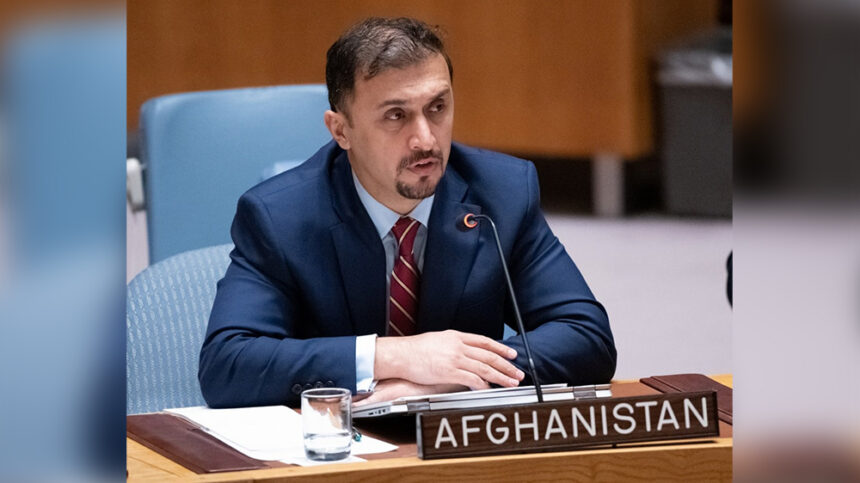RASC News Agency: Nasir Ahmad Faiq, Afghanistan’s representative to the United Nations, has rebuked the Taliban for recent statements by their Foreign Minister regarding potential alignment with regional and Western powers. Faiq remarked, “The Taliban have driven Afghanistan into isolation, and their so-called diplomatic slogans lack value and credibility.” Faiq criticized the Taliban for pushing the nation into poverty and global isolation, dismissing their claims and rhetoric as devoid of significance.
In a direct response to Abbas Stanekzai, the Taliban’s Deputy Foreign Minister, who has recently made veiled criticisms of the policies of Taliban leader Hibatullah Akhundzada, Faiq wrote on the social media platform X on Monday: “The past four years have been a profound test of your governance, and your actions have failed to back your claims.” Faiq underscored that the Taliban have brought no tangible benefits to the Afghanistani people. Instead, their governance has inflicted increasing harm and destruction on a daily basis.
Stanekzai had earlier called for strengthening political and trade relations with China, Russia, and Iran during a meeting in Kabul. He expressed optimism that improved ties between Iran and the Taliban could enable both sides to resist U.S. and Western pressures. Additionally, Stanekzai has previously advocated for improved relations with Western countries, highlighting inconsistencies in the group’s foreign policy approach. Faiq further criticized the Taliban’s ban on women pursuing medical education, calling it a blatant act of hostility against the Afghanistani people. He stated that the Taliban’s so-called “diplomatic slogans” are ineffectual and fail to resonate internationally.
Stanekzai also spoke out against media restrictions in Afghanistan this week, urging the Taliban leadership to refrain from treating the media as adversaries. The Taliban, however, continue to impose draconian restrictions on Afghanistani citizens following their return to power. They have shut down schools and universities for girls and banned women from working. Despite these oppressive measures, the group persistently claims they are safeguarding the rights of Afghanistani citizens a narrative widely dismissed by critics both domestically and internationally.






